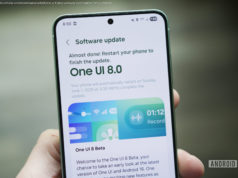Google hopes to exploit public perception that Siri isn’ t such a great voice assistant by making its own voice assistant available on Apple’s platform. Time will tell if the plan works
Google I/O saw a range of Google announcements, from the introduction of a low-end Android O OS for low-end phones to the introduction of new software designed to challenge Siri on iPhone, Google Assistant for iPhone.
Apple’s ads-focused competitor is playing a strong move with this release.
The company hopes to exploit existing public perception that Siri isn’ t such a great voice assistant by launching its own assistant at Apple’s platform. Time – and any Siri improvements announced at WWDC – will tell us if it succeeds in this.
Presently available only in the U. S., Google Assistant lets you use your voice to request Google searches and control services, including smart home devices.
You can use it to make calls, send messages and emails, set reminders and events, play YouTube music, get navigation advice, and search for the answers to questions.
It is an app, which means you need to activate it to use it just as you do any app on iOS. That’s different from Siri on iOS, which is built inside the operating system so you can access it without needing to open the app. Curiously, Assistant can do one thing Siri inexplicably cannot do — which is to turn on your flashlight.
Enterprise users, particularly developers, may also be interested to learn that Google has introduced a software development kit they can use to build apps that integrate with Google Assistant.
What else do enterprise users who are building their digital transformation strategy around Apple and iOS need to know about Google’s new toy?
There are a few reasons enterprise users may be wary of jumping too fast to allow employees to install the new software on their iPhones, particularly those used to share and/or access confidential information.
It is fortunate that most digital transformation leaders in the C-suite are already too wary to simply extend their existing security policy in order to support any new software, particularly software that by its nature demands potentially valuable information be shared with a third-party server outside of corporate control.
CIOs will need to think about the following when considering the potential of permitting use of Google Assistant on iPhones:
Now Assistant is available on iOS, will Apple bring Siri to Android?
I doubt it, but as both firms invest heavily in machine intelligence and AI, it will be interesting to see which of these two services (and Cortana, which is also available on iOS) will still be seen as the best available voice assistant in 12-months.
That’s great for consumer users, but enterprise chiefs will likely want to think a little more deeply before adding support to Google’s tool to their security policy.






